Issue #2
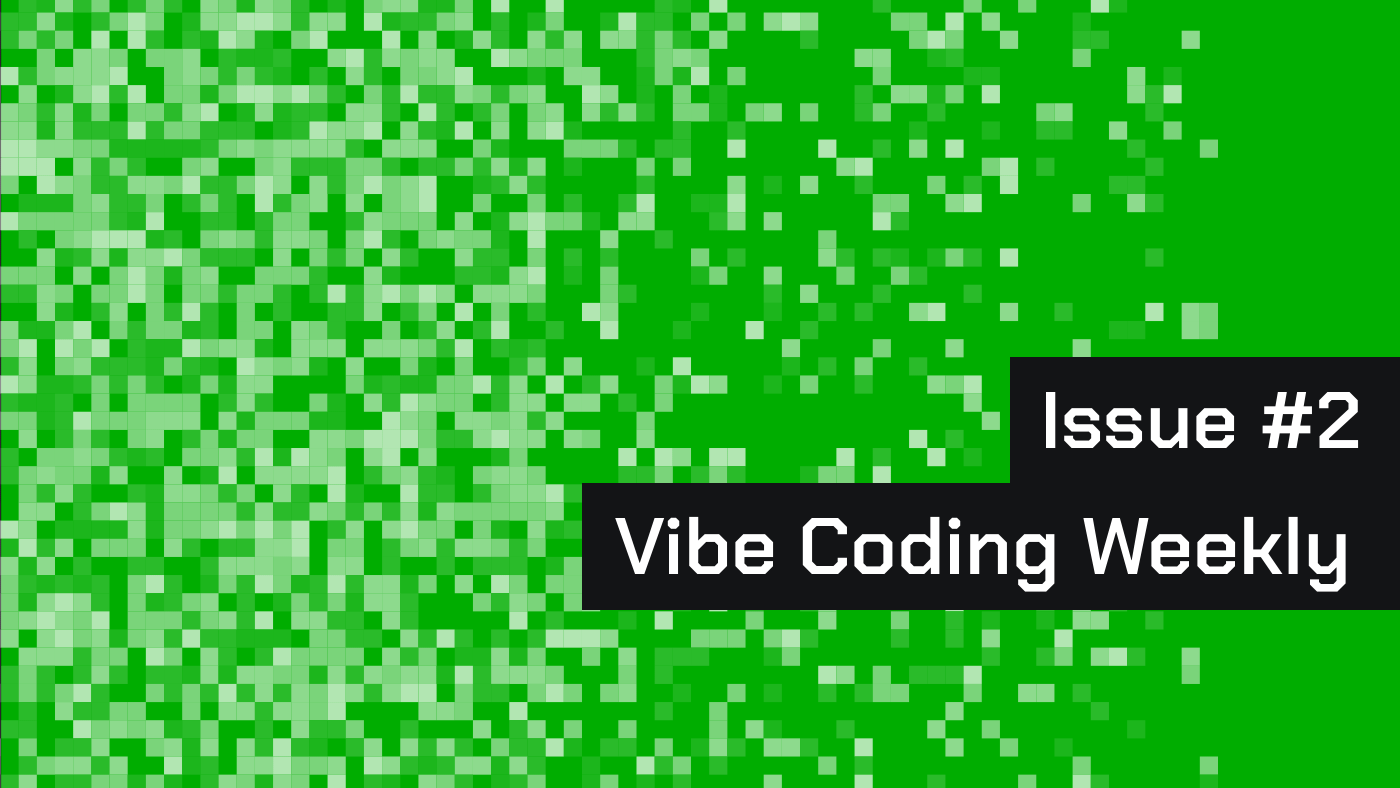
Vibe Coding is evolving fast. This issue brings you two powerful AI tools to supercharge your builds, breaking industry news (like OpenAI's possible $3B move) and standout articles unpacking what vibe coding means for developers, founders, and the future of software. Whether you're prototyping with prompts or rethinking your role in an AI-driven world, there's plenty here to keep you in the loop and ahead of the curve. Let's get into it.
🛠️ Tools
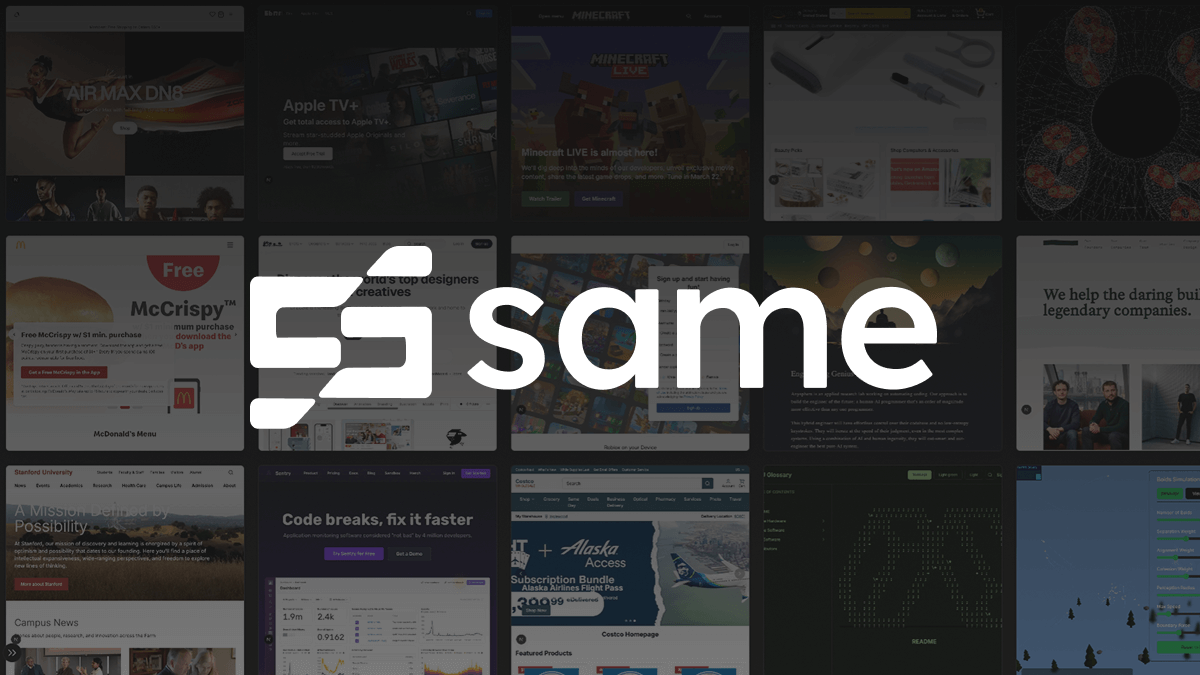
Same.new is a free AI-powered platform that enables users to build full-stack web applications through simple text prompts. By entering a prompt, users can generate applications such as CRMs, blogs, or clones of existing tools like Linear. The platform offers features like file management and pre-built prompt examples to assist users in getting started

Tempo is an AI-powered development platform designed to accelerate the creation of full-stack React applications. It offers a visual editor for intuitive UI design, real-time multiplayer editing for seamless team collaboration, and one-click deployments to streamline the launch process.
OpenAI Codex CLI
Codex is a lightweight, open-source coding agent from OpenAI designed to run directly from the command line. Roma, a developer experience lead, and Fouad from the research team demonstrate how Codex can read and edit files, run commands securely, and help build features or entire apps. In a live session, they use Codeex to explore an open-source project, implement a dark mode feature, and even recreate a Photo Booth-style app from a screenshot. Codex is now available on GitHub for anyone to explore and contribute to.
📰 AI Industry News
Stay informed about the latest developments in the AI and development ecosystem.
Introducing GPT-4.1 in the API
OpenAI has unveiled GPT-4.1, the latest addition to its GPT series, featuring significant enhancements in coding, instruction following, and long-context comprehension. Released on April 14, 2025, GPT-4.1 is available in three versions: the standard GPT-4.1, a cost-effective Mini, and the lightweight Nano model.
Vibe coding is changing the way investors think about founders
This article discusses how "vibe coding" reshapes venture capitalists' (VCs) evaluation of startup founders. While technical fluency remains essential, the emphasis is now on a founder's ability to leverage AI tools effectively. This evolution is influencing hiring practices, with a growing preference for individuals who possess an "architect mindset" and can navigate AI-driven development environments.
OpenAI is reportedly in talks to buy Windsurf for $3B, with news expected later this week
OpenAI is reportedly considering a $3 billion acquisition of Windsurf (formerly Codeium), a leading AI-native coding tool that aligns with the vibe coding philosophy. This would be OpenAI's largest acquisition to date and a strategic move to control a more comprehensive, developer-centric coding experience beyond just providing AI models.
Google’s latest AI model report lacks key safety details, experts say
Google's recent technical report on its latest AI model, Gemini 2.5 Pro, has drawn criticism from experts for lacking crucial safety details. The report, released weeks after the model's public launch, omits findings from evaluations of potentially dangerous capabilities and does not reference Google's Frontier Safety Framework, designed to identify severe AI risks. Experts express concern over the report's minimal information and delayed publication, making assessing the model's safety and Google's adherence to its public commitments challenging.
Windsurf and Netlify Launch First-of-its-Kind AI IDE-Native Deployment Integration
Windsurf (formerly Codeium) and Netlify have partnered to introduce a groundbreaking integration that enables developers to build and deploy full-stack web applications directly from the Windsurf AI-powered IDE. This collaboration eliminates manual setup or switching between tools, allowing developers to go from an initial AI prompt to a live, production-ready URL within the same environment. By leveraging Netlify's platform, users benefit from automated infrastructure, real-time scaling, and enterprise-grade security features, streamlining the development process and accelerating time to market.
📝 Featured Reads
Stay in the loop with standout articles from the world of AI, coding, and tech trends.
The Post-Developer Era
In his blog post Josh W. Comeau revisits the concerns raised in his 2023 article, "The End of Front-End Development," about AI potentially rendering human developers obsolete. Two years later, he observes that while AI tools have become more integrated into software development, they serve to augment rather than replace human developers. Comeau highlights that companies like Google report AI contributing to code generation, but this doesn't equate to AI independently handling development tasks.
Not all AI-assisted programming is vibe coding (but vibe coding rocks)
Simon Willison discusses "vibe coding," a term by Andrej Karpathy that refers to developers relying on AI-generated code without rigorous review. While AI-assisted coding benefits prototypes and personal projects, Willison stresses the importance of code review and understanding in professional development. He advocates for responsible AI tool usage, noting that vibe coding can help newcomers and experienced developers but should not replace core software engineering principles.
My first attempt at vibe coding
Tyler Shields, a technologist with over 30 years of experience, explores "vibe coding." He uses the AI-powered IDE Cursor to create a Python application that processes web requests and retrieves company analysis through Google Gemini Deep Research. Despite facing challenges with outdated software and misconfigured directories, the AI successfully set up the environment and built the application with minimal input. Shields finds the experience impressive yet concerning, as it raises questions about control and the evolving role of human developers in software development.
Our Best Customers Are Now Robots
In the blog post Kurt Mackey discusses how AI-driven applications are reshaping cloud infrastructure. He explains that Fly.io’s platform, designed for rapid provisioning, is ideal for AI workloads. As AI systems increasingly generate code and handle development tasks, the landscape of software development is changing, with AI now becoming the primary user of platforms like Fly.io.
How Airbnb Used AI to Finish an 18-Month Code Migration in Just 6 Weeks
Airbnb leveraged large language models (LLMs) to complete a significant code migration project—converting approximately 3,500 React component test files from Enzyme to React Testing Library (RTL)—in just six weeks. This task was initially estimated to take 18 months manually. The team developed an LLM-driven pipeline that included automated validation and refactoring steps. By employing a "sample, tune, sweep" approach with context-rich prompts (up to 100,000 tokens), they achieved a 97% success rate across the migration. The remaining files were manually addressed after extensive retries.
📺 Videos Worth Watching
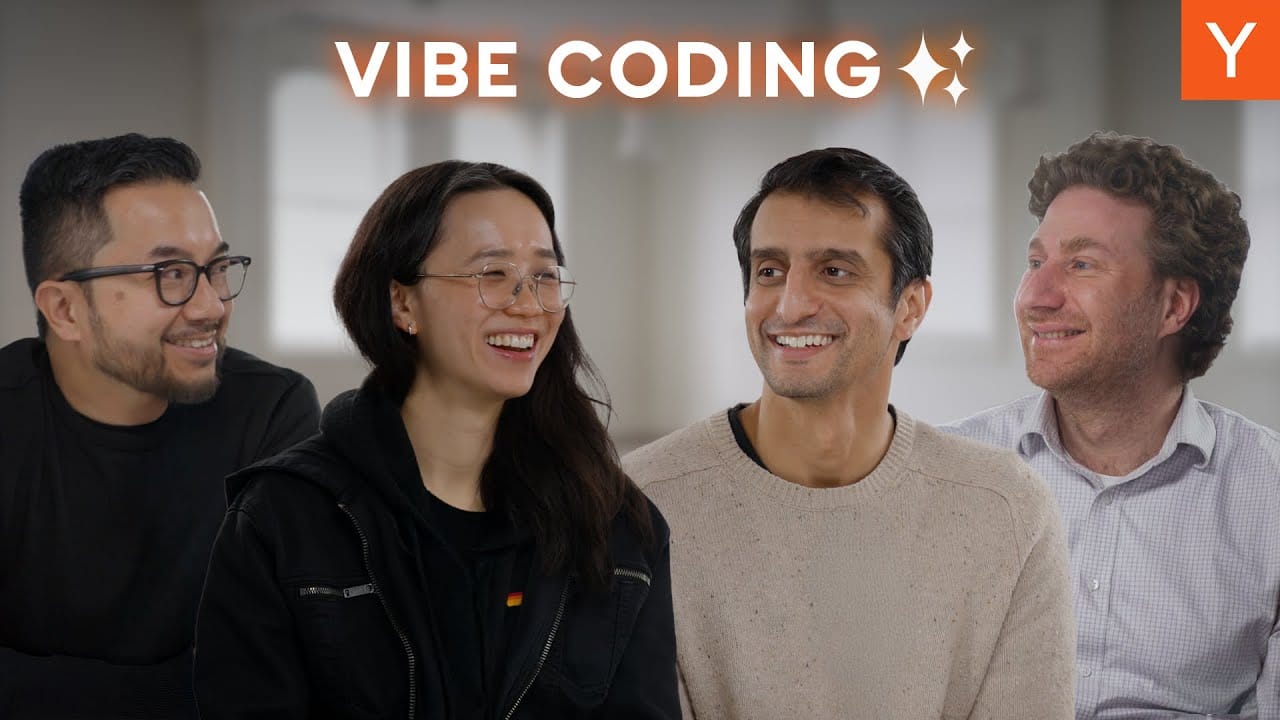
The podcast introduces Vibe coding, a new approach to software development that values intuition, creativity, and rapid AI-assisted coding over traditional practices. Sparked by a viral post from Andrej Karpathy, the discussion explores survey insights from Y Combinator founders who describe a shift from conventional coding to product-focused roles. Founders report faster workflows, less emotional attachment to code, and increased reliance on AI-generated solutions, sometimes up to 95% of their codebase. Despite these changes, human input remains vital for debugging and system architecture. The hosts argue that Vibe coding is reshaping hiring and development norms and is poised to redefine the future of engineering.
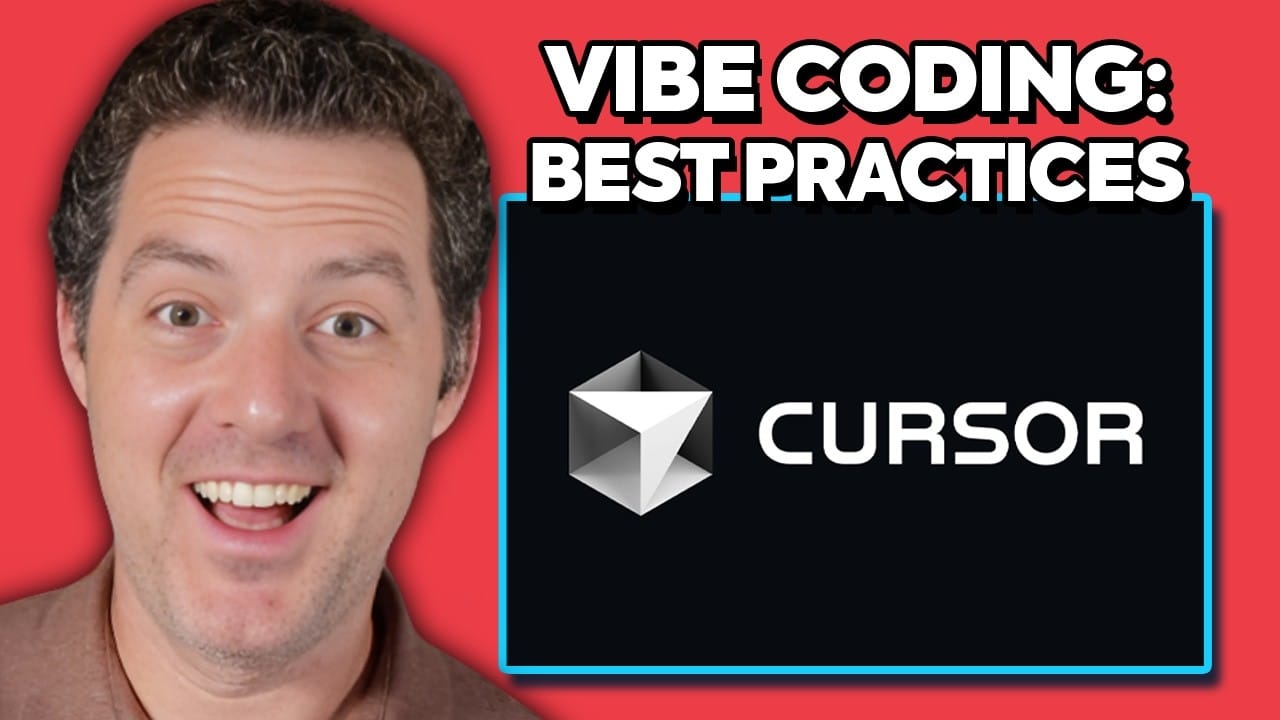
Vibe coding is an emerging approach where AI agents handle most tasks requiring minimal manual coding. Matthew Berman shares their workflow using tools like Cursor and Wind Surf with models like CLA 3.7 and Grock, emphasizing the importance of detailed app specifications and clear rules to guide AI behavior. Best practices include frequent commits, clean code organization, and thorough testing. Managing context and using focused prompts enhance performance. Matthew is optimistic about the future of AI coding, encouraging even non-coders to explore its potential and leverage it to build functional applications.
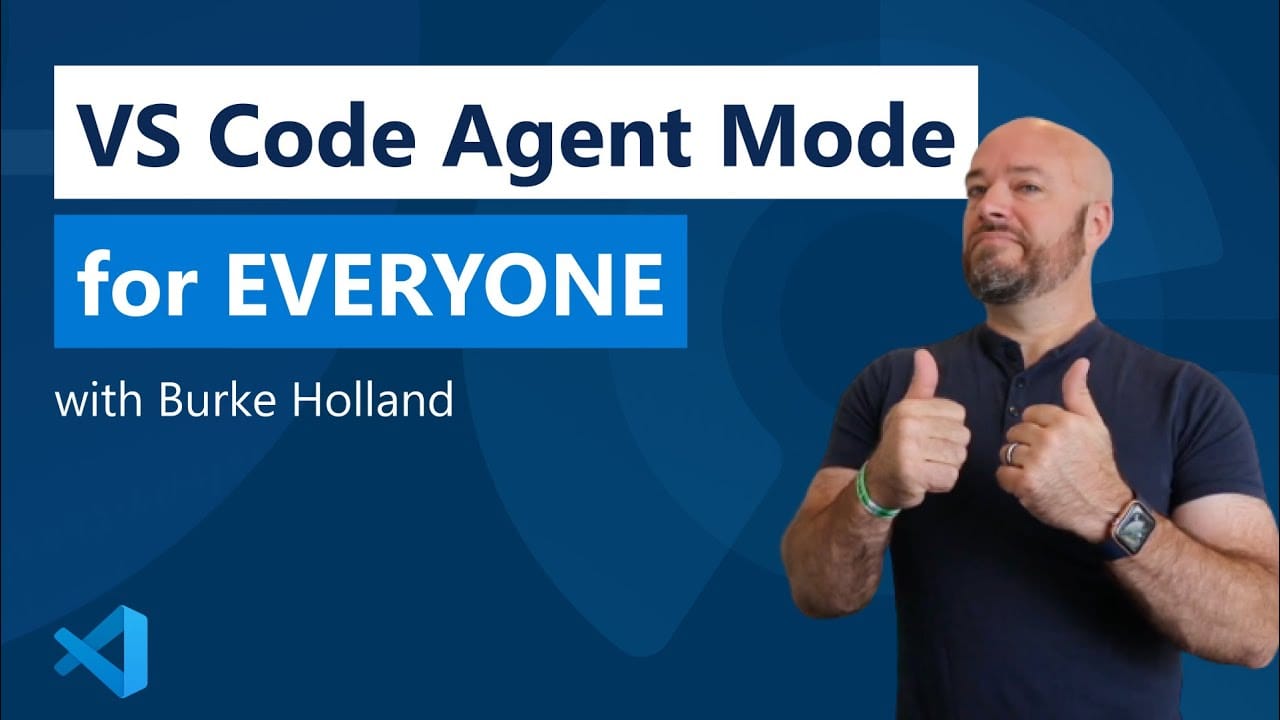
Burke Holland introduces powerful new AI features in Visual Studio Code, including agent mode, a new completions model, and MCP server integration. Burke demonstrates these tools by building a full-stack application using modes like ask, edit, and agent—each offering increasing levels of automation. A Project Requirements Document and custom AI instructions guide development, while a Postgres database is integrated via MCP servers for live querying. Despite some minor model limitations, the AI successfully builds the app, showcasing its autonomous development potential. The video ends by highlighting future capabilities like custom API key support and encourages developers to explore these new tools.
📅 Events
Upcoming hackathons or virtual events.
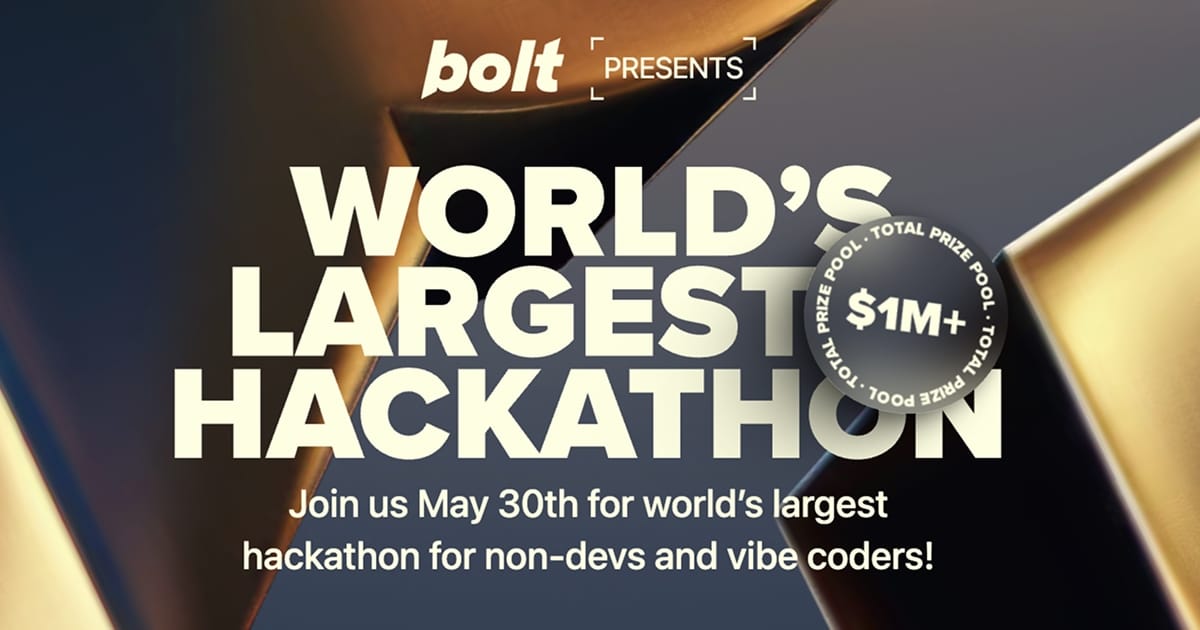
Bolt's Biggest Hackathon with $1Million Prizes for Vibe Coders.
Bolt.new organizes the world's largest coding hackathon, with over $1 million in prizes, created for developers to build innovative products using Bolt's platform. This hackathon aims to set a world record by having 100,000 participants build together in the same event, making it a massive global coding competition.
😂 Vibe Coding Jokes

Senior Engineer tries Vibe Coding.
We’re experiencing an exciting shift in building and thinking about software, and we’re thrilled to share these insights and tools with you. As vibe coding continues to redefine the development landscape, remember to stay curious, experiment with new tools, and always push the boundaries of what’s possible. Until next time, keep vibing!